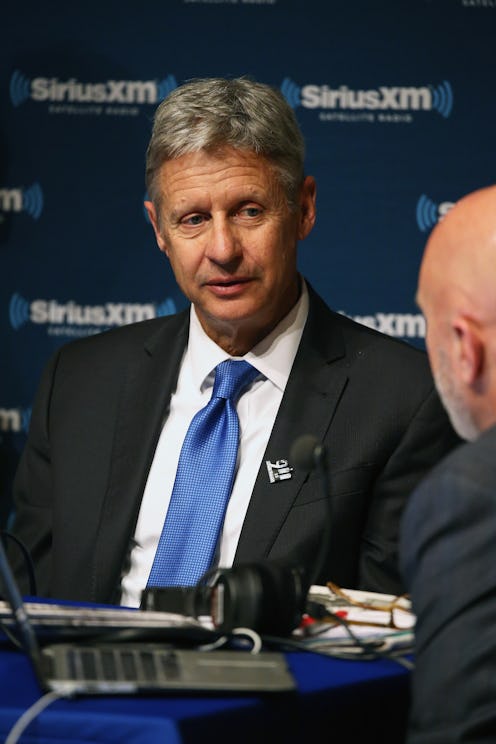News
Can Faithless Electors Vote Third Party?
By now we've all probably come to the realization that we are not, in fact, dreaming and Donald Trump will become the 45th President of the United States. As much as some of us may wish it wasn't happening, this is most likely really happening. I say "most likely" because some people are still holding out hope that faithless electors will ignore the outcome of their states' popular vote and cast their ballot for Hillary Clinton instead. But what about Gary Johnson and Jill Stein — could they get any electoral college votes? Can faithless electors vote for third-party candidates? The short answer is yes, but it's probably unlikely.
Since the founding of the Electoral College, there have only been 157 faithless electors, and 71 of those votes faithless electors changed their votes because the original candidate died the day before the Electoral College voted (that was 1872 Democratic candidate Horace Greeley, in case you were curious). So really, it's more like 86 faithless electors in the history of the Electoral College. Of those, 82 switched their vote and three abstained from voting. The most recent incident of a faithless elector occurred in 2004, when a Democrat from Minnesota voted for John Edwards, John Kerry's running mate at the time, instead of Kerry. However, this is largely believed to have been a mistake, rather than a protest vote.
So could any of these faithless electors buck the system and cast a vote not for Hillary Clinton, but for Gary Johnson or Jill Stein? Technically, yes. In fact, there have been multiple times in history where a faithless elector did not vote for a major party's presidential candidate. In 1972, Virginia Republican Roger L. MacBride did not vote for Richard Nixon, who won the popular vote in Virginia — instead he voted for John Hospers, the Libertarian presidential candidate. In 1968 Dr. Lloyd W. Bailey, a Republican elector from North Carolina, voted for George Wallace, the candidate from the Independence Party, over Nixon. I guess the electors really did not like Nixon. Also, in 1948, Preston Parks of Tennessee voted for Strom Thurmond, the candidate from the States Rights party — a party formed when members of the Democratic party split off to create their own party before the election — over the Democratic candidate.
So yes, it's possible that Gary Johnson or Jill Stein could still get some electoral votes. It's unlikely, though, and even less likely to change the outcome of the election — faithless electors have not once changed the outcome of a presidential election. So unless the Electoral College makes history in 2016, it looks like we need to settle in and get used to the reality that a Trump presidency is very probably happening.
Images: Getty Images; Giphy
